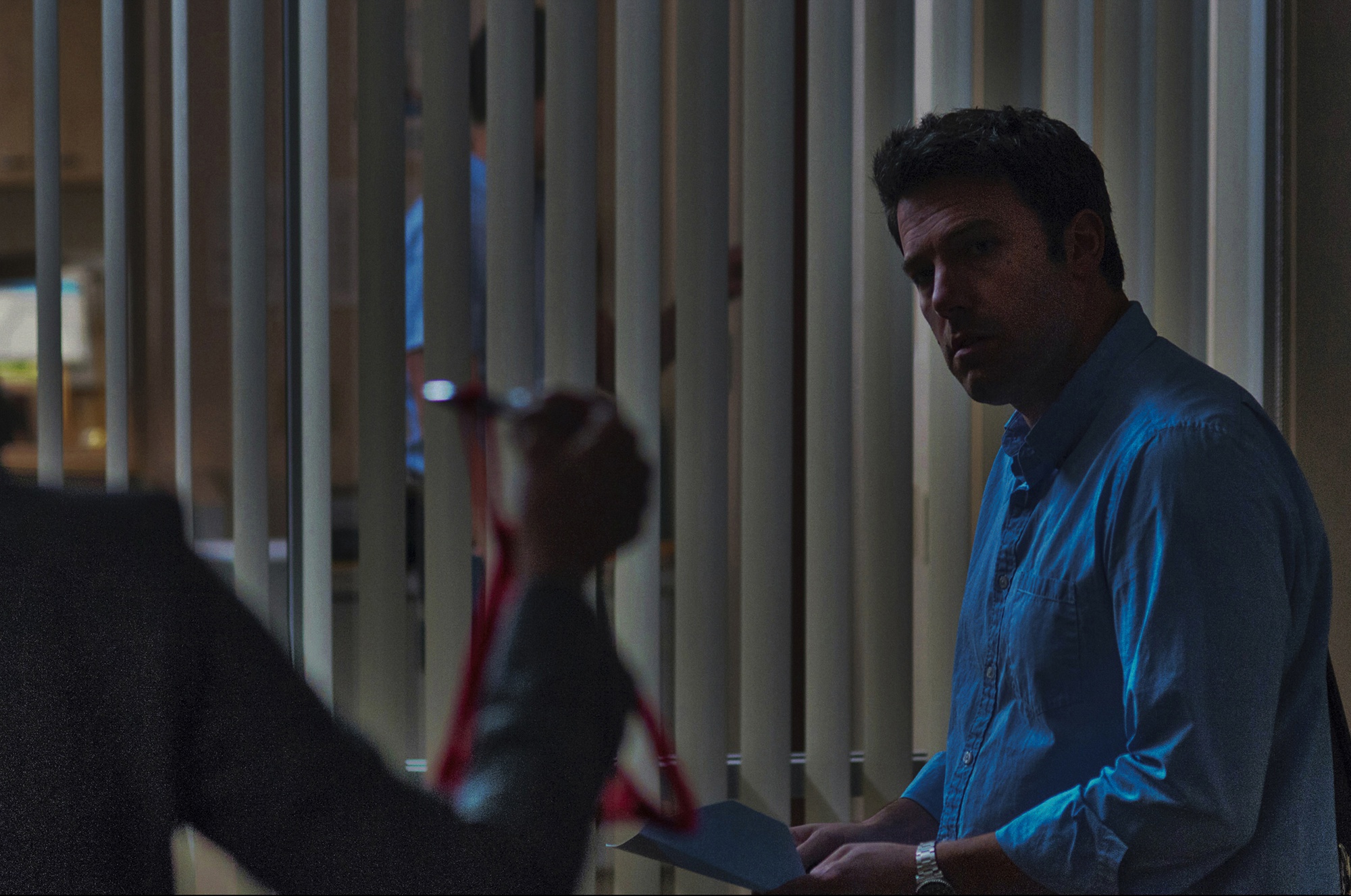
News
Summers Will Not Finish Semester of Teaching as Harvard Investigates Epstein Ties

News
Harvard College Students Report Favoring Divestment from Israel in HUA Survey

News
‘He Should Resign’: Harvard Undergrads Take Hard Line Against Summers Over Epstein Scandal

News
Harvard To Launch New Investigation Into Epstein’s Ties to Summers, Other University Affiliates

News
Harvard Students To Vote on Divestment From Israel in Inaugural HUA Election Survey
'Gone Girl' Chills and Thrills
'Gone Girl'—Dir. David Fincher (20th Century Fox)—4 Stars

“I picture cracking her lovely skull, unspooling her brain, trying to get answers,” says a man as he runs his fingers softly through his beautiful wife’s blond hair. Laying her head on his chest, his wife turns and gives him a look of anger mixed with alarm. The opening scene of David Fincher’s “Gone Girl,” starring Ben Affleck, Rosamund Pike, and Neil Patrick Harris, foreshadows the disturbing events about to unfold in this dark, elegantly crafted crime thriller. An adaptation of Gillian Flynn’s best-selling novel, “Gone Girl” explores the unsettling idea that even the closest of people don’t truly know each other. It paints an image of human nature as beautiful and composed on the outside but sinister and ugly on the inside.
Nick Dunne (Affleck) returns home on the morning of his fifth wedding anniversary to discover that his rich, beautiful wife, Amy (Pike) has disappeared. The crime scene at their suburban mansion suggests a brutal abduction, and a police investigation ensues. The film is structured in two parts: the past, narrated by Amy’s diary entries, and the present, in which Nick is living a waking nightmare where he is suspected of murdering his wife. The audience soon comes to see that neither Amy nor Nick’s story can be believed. What makes the film so captivating is that it immediately plunges the audience into the mystery of Amy’s disappearance. By the end, the film brilliantly weaves all the subtle details together and ties up loose ends.
The acting in the film is undoubtedly exceptional. Affleck gives a nuanced performance as Nick, the handsome, laidback husband who is confident but not snobby, charming but not overtly flirtatious. Meanwhile, Amy has it all: beauty, wealth, and sophistication. Together, Nick and Amy are the picture-perfect couple, or so it seems on the surface. Both Affleck and Pike do a phenomenal job of depicting their characters as multidimensional: light and composed on the outside, ugly and bitter within. As the police begin probing around for clues, Nick becomes guarded and secretive about his marriage with Amy. Pike portrays Amy as a classy New York woman with a sense of control over her life, yet she also brings out a childish vulnerability.
Not only is the acting remarkable, but Fincher also manages to capture a mysterious and suspenseful mood throughout the entire film. Set in the small town of North Carthage, Missouri, the setting appears to be an ordinary, quiet suburban neighborhood. Yet something feels off. There is a line of downtown buildings with closed or for sale signs. The houses that line the streets of the neighborhood are huge mansions, but many of them are up for sale and empty. Right from the start, the film creates a mood of apprehension that keeps the audience on the edge of their seats. Moreover, composers Trent Reznor and Atticus Ross, well known for scoring “The Social Network,” team up again in “Gone Girl” to produce a deceptively serene and hauntingly unsettling score. Even in some of the more joyful scenes of the film, Reznor and Ross have managed to produce an uneasy melody that captures the mysterious tone of the film. For instance, the night Nick meets Amy, they pass through a mist of sugar powder as workers unload bags of sugar into a bakery; it is here that they share their first romantic kiss. Playing in the background are deep, soothing xylophone chords mixed with disconcerting machine sounds, which add an ominous, foreboding tone to an otherwise blissful scene.
The only minor negative aspects of the movie were the sparse moments of humor that were added in for comic relief. While they did serve the purpose of breaking the tension, they unnecessarily took away from the darker and mysterious side of the movie. There were a few times when the film felt more like a twisted comedy rather than a psychological thriller.
“Gone Girl” is one of the most highly anticipated movies this fall, and rightfully so. Its acting performances, plot, and suspenseful mood contribute to the film’s excellent adaptation of Gillian Flynn’s bestseller. Throughout the film, the audience will be left speechless and queasy. As for the ending: it will blow you away.
—Crimson staff writer Jack Zhou can be reached at jzhou45@gmail.com.
Want to keep up with breaking news? Subscribe to our email newsletter.
